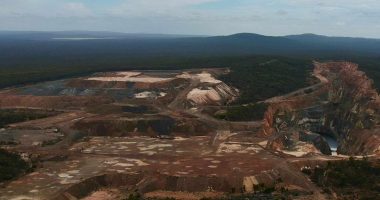Chinese economic data was already looking bad enough when the country released its most recent export and inflationary data, which showed plummeting exports to the US, and a country that is officially in deflation.
Only six days have passed since then, and a new crisis has emerged in the world’s second-largest economy, this time in the property sector.
China’s biggest property developer, Country Garden, ceased offering its own bonds over the weekend due to missed bond payments.
The significance of Country Garden’s size cannot be underestimated, as its issuance of bonds provides insight into the company’s scale.
First Evergrande, and now Country Garden
Following the near-collapse of former top developer Evergrande in 2021, Country Garden took its place as China’s largest property developer. However, the company now appears to be teetering on the edge of collapse as well.
Country Garden has even issued warnings of potential losses amounting to $11 billion, leading to the prevailing belief that the company’s longevity is highly questionable.
The yield on Country Garden’s bonds, set to mature in January 2024, has surged by 2500 per cent.
This substantial increase in bond yields, driven by bond sell-offs, reflects not a positive prospect but rather a lack of confidence in the company’s continued existence.
Country Garden was already struggling
But as Knight Financial Advisors Director Jason Featherby points out, this isn’t exactly a new situation.
“This has been going on for quite a while … Country Garden’s share price peaked [around] 2018, so it’s been in decline for 5 years,” he said.
“The reason bond [yields are so high] is because no one believes Country Garden will be around to come good on that bond in January … even if the Government do come around, the market is betting it’s too late for Country Garden.”
The news has already rocked metals markets. Iron ore is down on the news; as are copper and zinc.
Pain is coming for iron ore exporters
Mr Featherby sees miners BHP (BHP) and South 32 (S32) taking earnings hits, as well as the budgetary margins of future budgets, should iron ore demand collapse along with Country Garden.
The activities of Country Garden significantly contribute to the demand for iron ore, especially affecting Australian export revenues, particularly those of Western Australia.
Mr Featherby sees Chinese stimulus eventually stepping in, but, notes the country is likely to do it on its own terms, and without regard for Australian exporters.
“We’ve already seen the iron ore price come off quite a bit, 9 or 10 per cent since these Chinese property sector concerns raised their head again, and it will definitely make a dent in our balance of trade,” he said.
China’s problems are far larger than just property
However, Mr Featherby’s concerns extend beyond Country Garden.
He added that the country’s citizens aren’t happy, confidence is clearly at record lows, and the country’s youth is suffering from huge unemployment.
China has one of the world’s youngest populations by percentage, at more than 40 per cent, and so the issue of youth unemployment suggests deflationary trends may be here to stay for a while yet.
City Index Senior Market Analyst Matt Simpson told The Market Herald last week that China never stays in deflation for too long when you’re looking at historical data, and this harmonises with Mr Featherby’s views that Chinese stimulus will come.
In fact, the government has already tried to stimulate activity. But what it has already announced is not enough.
China on Tuesday cut down the interest rate on its medium-term facility loans, after doing the same in June. In June, the country cut its loan rates by 10 basis points. Today (Tuesday, August 15), the government dropped them by another 15.
This preceded data half an hour later showing bank loans in China fell 89 per cent between July 2023 and August 2023 – a drop that’s hard to properly comprehend.
Mr Featherby described this move as a bandaid and an insufficient one at that.
Insufficient to just cut rates slightly
“The 10 basis points cut – point one of a per cent – it’s putting a bandaid over a pretty big problem … China represented 40 per cent of the world’s growth over the last decade or so, if not longer, so if they don’t get the confidence of their people to go and invest again, I’m not sure it’s going to end well,” he said.
He did note that while spending is down, savings ratios are actually on the increase – a potential sign of hope in a future maybe not far away.
“The Chinese saving rate is increasing while spending is falling and cutting rates by 10 basis points or 15 basis points I don’t think will have much impact at all.”
When asked to predict when a recovery might start to become palpable, Featherby suggested we could see a happier-looking story in the first half of 2024.
But global pandemics are well known to precede global shifts in power, and the still echoing waves of COVID-19 have thrown no shortage of conventional economic logic out the window since 2019.
Australia might have hard times ahead of it yet.








